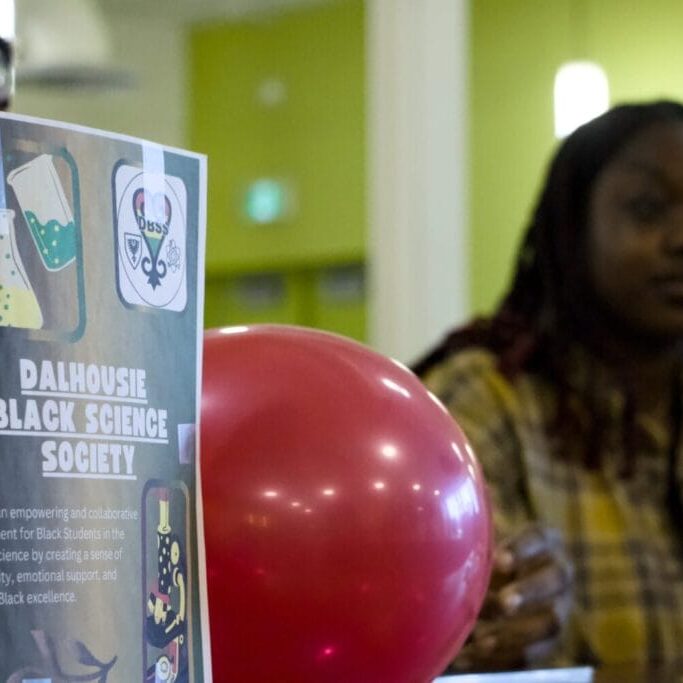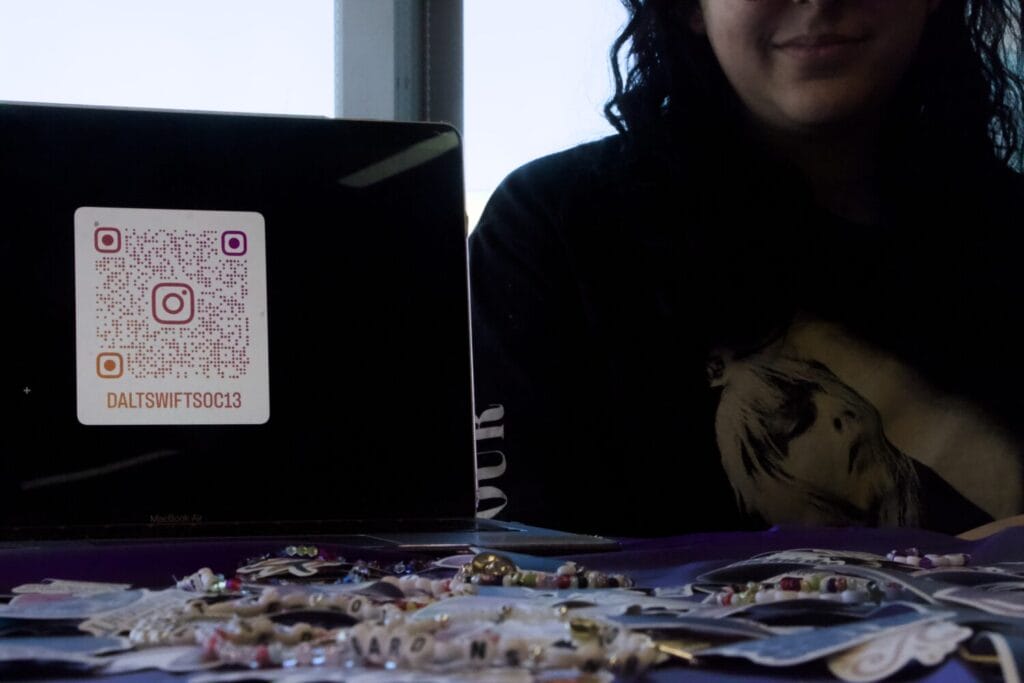
Meet the societies shaping Dal
The Dalhousie Student Union’s 2025 Winter Clubs and Society Expo gave societies a chance to showcase their communities
Dalhousie University has an impressive number of societies contributing to the social fabric of its campuses. Typically, societies are groups of students united by shared interests in a particular academic field or area of study. What began as an opportunity for like-minded scholars to discuss interests beyond their coursework has evolved into a tradition encompassing fraternities, hobbies and philanthropic endeavours.
University societies have evolved into spaces that go beyond degree-focused activities, blending academic interests with social events like trivia nights and annual merchandise drops.
At Dalhousie, societies go beyond the studiable. From book clubs to gardening, students in Halifax are bound to find their people. Moreover, students at Dal are actively encouraged to start their own clubs and societies that fit their personal interests.
Below are a number of non-academic societies from the Dalhousie Student Union’s Winter Clubs and Society Expo on Jan. 21, sharing how their groups influence Dalhousie culture and break away from the traditional university society model.
Dalhousie Epilepsy Society
Laith AlHaheed and Alaa Abu Ahmad, are the Dalhousie Epilepsy Society’s president and vice president, respectively.
“We are raising funds for epilepsy awareness for people in rural communities, specifically in Africa,” AlHaheed says. “A lot of those communities are disadvantaged. They are resource-constrained, and they don’t have the necessary healthcare infrastructure.”
“Epilepsy, still, in Canada is very stigmatized,” says AlHaheed. “We try to do first aid seizure workshops at Dalhousie, we try to raise awareness on campus and we try to highlight facts about epilepsy. Bringing that awareness to Nova Scotia, while helping rural Mfuwe communities is very important.”
Dalhousie Taylor Swift Society

A table scattered with Eras Tour stickers, glitter and lyrics glints, catching the eyes of a small crowd.
“We hold events based on Taylor Swift. We study and listen to her music, have friendship-bracelet-making nights, stuff like that,” said Tori Parker, a representative of the Dalhousie Taylor Swift Society.
They’ve run balls and trivia nights and are attempting to create an atmosphere at Dal that encourages fans to express their love.
“It’s just a way to get Swifties on campus to get together and bond,” says Parker.
Ninety Percent Society
“The purpose of this society is to raise awareness of eating disorders and the lack of treatment available,” says Grace Metcalf, the society’s social representative. “The name came from the fact that only 10 per cent of people who have eating disorders receive treatment, the other 90 per cent do not. We are here advocating for that other 90 per cent.”
The society provides resources on treatment, meal prepping and mental health. They focus on busting myths, the difficult atmosphere of young-adulthood eating and the use of social media in promoting wellness activities.
“We are trying to create a space to destigmatize it. A lot of our events don’t even surround the topic of eating disorders, instead creating a space that takes our mind off something that feels so heavy at times.”
Dalhousie Black Science Society
Steven Mata and Samantha Kieyele, two of the society’s representatives, are hoping to reconstruct the narrative of what it means to be a scientist and what constitutes science.
“Most of what you see when searching the word ‘science’ are white people in lab coats, but it’s more diverse than that,” says Kieyele. “I really believe in the philosophy that if you don’t see it, you won’t believe it. So, this society is showing Dal that different cultures can participate in the scientific community and [that Dal should] prioritize [the involvement of different cultures]. It’s encouraging representation,” she says.
They are hoping to establish a safe, welcoming community for students to network, connect and conduct outreach.
Dalhousie-Kings Crafting Society
Sarah Johnson, an events coordinator with the Dalhousie-Kings Crafting Society, sits surrounded by yarn, markers and a small but eager line of participants contributing to a massive colouring page blanketing her table. Her society remains true to its name — they craft.
“Anybody who is open to learn a craft, or work on their own craft … That’s what we help supply with our weekly open craft nights,” says Johnson. “School can be so hectic. So, having these BYOCs to relax and socialize are really important to do.”
The Society focuses on the impacts of art on mental health, connection and self expression. By collaborating with residence groups and other societies, they’re expanding crafting beyond their cozy corner.






